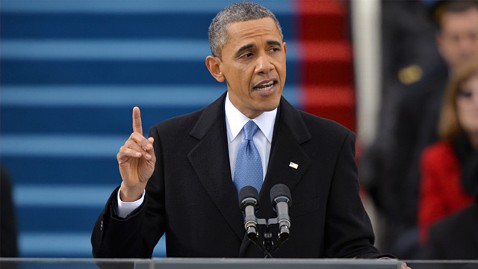The trio of Southern gentlemen came to the Senate together in 2003, the leading edge of a renegade Republican class set on shaking up the chamber’s staid ways and aggressively promoting the Bush White House’s conservative agenda.
Ten years later, Sens. Lamar Alexander (Tenn.), Saxby Chambliss (Ga.) and Lindsey O. Graham (S.C.) are now establishment dealmakers and elder statesmen — roles that earn them respect in Washington but could lead to tough challenges from fellow Republicans when they run for re-election next year.
On Friday, Chambliss announced that there would be no re-election for him, opting for retirement over another run that was certain to include a heated primary challenge, possibly from several candidates. Chambliss took pains to say that he would have won and instead cited Washington “gridlock” as his reason for retiring.
Regardless, Chambliss’s departure is another blow to the pragmatic wing of the Senate, with a lineup of potential successors all hailing from the staunchly conservative camp of the Georgia GOP.
Chambliss’s successor is likely to contribute to a rightward movement over the past four years that has made the ranks of Senate Republicans more conservative, but also led to repeated political disappointment. A handful of 2010 and 2012 Republican primaries produced nominees who bungled their way to general election defeat, when victory once appeared certain.
What happens with the other two Southerners could go a long way to determining the ideological makeup of the Senate Republican caucus.
Alexander and Graham are both running, raising money and appearing throughout their states. Alexander, a former two-term governor and U.S. education secretary, has the stronger footing for the moment, having locked up the endorsements of his state’s GOP congressional delegation and every prominent Republican state official. Graham has no prominent challenger yet, but Palmetto State Republicans are sizing up the race trying to decide if he’s ripe for a challenge.
That Alexander, Chambliss and Graham have found themselves in this situation, a decade after debuting as rabble rousers who helped return the chamber to GOP control, is the latest demonstration of how much the Republican Party has changed. Its voters more than ever demand a confrontational tone and in-your-face tactics, the sort of behavior that they have shied away from.
“The big change is in terms of strategy and tactics,” said Stuart Rothenberg, editor of the nonpartisan Rothenberg Political Report, noting that the three incumbents are all fairly conservative in their policy positions. “The war has changed. Republican voters want every fight to be hand-to-hand combat. They don’t want to give any ground.”
Alexander rejected the idea that the trio had “gone Washington” as they each became more powerful. “I know my way around here. We’re each finding our niche, and that’s pretty normal after 10 years,” he said in a recent interview.
Before his Friday announcement, Chambliss had been viewed as the most vulnerable Republican incumbent to a challenge from within. His apostasies to the new Republican posture were numerous in recent years, most prominently being his close partnership with Sen. Mark Warner (D-Va.) in an effort to craft a bipartisan package of tax hikes and entitlement cuts to rein in the federal government’s $16.4 trillion debt.














